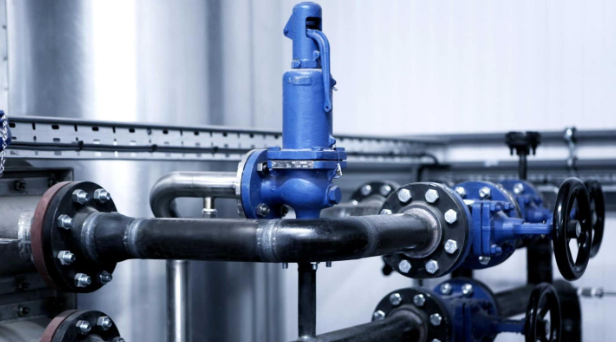How Safety Valves Improve Efficiency in Your Industrial Processes

Industrial processes often involve high pressures and temperatures, which are necessary for efficient production. However, these conditions can also be risky if not properly controlled. This is where safety measures like a safety valve become essential. A safety valve is a crucial device that helps protect both machinery and personnel while improving overall operational efficiency. In this article, we will explore how safety valves contribute to smoother and safer industrial operations.
Understanding Safety Valves
A safety valve is a device designed to release excess pressure from equipment, pipelines, or vessels. When pressure exceeds a predetermined limit, the valve opens automatically, allowing the excess pressure to escape. Once the pressure returns to a safe level, the valve closes again. By doing this, safety valves prevent accidents, equipment damage, and process interruptions. They are commonly used in industries like chemical processing, oil and gas, power generation, and manufacturing.
Preventing Equipment Damage
One of the main ways a safety valve improves efficiency is by protecting equipment. High pressure can cause pipes, tanks, and machinery to fail if left unchecked. When a safety valve releases excess pressure, it prevents costly breakdowns and prolongs the life of the equipment. This reduces the need for frequent repairs or replacements, ensuring that the industrial process continues without unnecessary interruptions. By avoiding downtime, companies can maintain steady production and reduce operational costs.
Maintaining Consistent Production
Efficiency in industrial processes often depends on maintaining steady pressure and flow rates. A safety valve ensures that pressure levels do not exceed safe limits, which can help maintain consistent production. When pressure spikes are controlled, the process runs more smoothly, and products are manufactured to consistent standards. This reduces waste caused by defective products and helps meet production targets more reliably.
Enhancing Worker Safety
Industrial processes with high pressure can be dangerous for workers. Explosions, leaks, and sudden bursts of steam or gas are serious hazards. A safety valve provides a layer of protection by controlling unexpected pressure build-ups. When employees know that the equipment is protected, they can work more confidently and efficiently. Safe working conditions also reduce the likelihood of accidents, which can be costly in terms of both human and financial resources.
See also: Mortgages for Business Owners in 2025? What You Need to Know?
Reducing Energy Waste
A safety valve not only protects equipment and workers but also contributes to energy efficiency. When pressure is properly managed, systems can operate within their optimal range. This means that energy is not wasted on handling uncontrolled pressure spikes or compensating for damaged equipment. By keeping the process stable, safety valves help industries save energy, lower costs, and reduce their environmental impact.
Supporting Regulatory Compliance
Many industrial sectors are required to meet strict safety and operational standards. Installing a safety valve ensures compliance with these regulations by providing a reliable pressure control mechanism. Regulatory compliance not only avoids penalties but also enhances the company’s reputation for safe and responsible operations. Following industry standards can lead to better relationships with clients, investors, and regulatory authorities, which indirectly supports long-term efficiency.
Conclusion
In industrial operations, efficiency and safety go hand in hand. A safety valve plays a critical role in maintaining this balance by preventing equipment damage, ensuring consistent production, enhancing worker safety, reducing energy waste, and supporting regulatory compliance. By incorporating safety valves into your processes, industries can achieve smoother operations, lower costs, and a safer working environment. In the long run, these benefits contribute to higher productivity and more efficient industrial processes, making safety valves an indispensable component of modern industrial systems.
